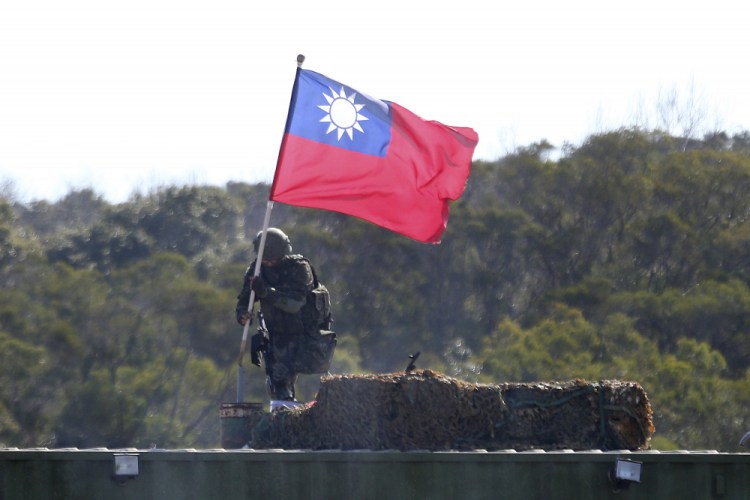The Biden administration has approved its first arms sale to the island democracy of Taiwan, a potential $750 million deal, amid rising tensions with China.
It calls for selling Taiwan 40 new M109 self-propelled howitzers and almost 1,700 kits to convert projectiles into more precise GPS-guided munitions, according to a State Department notification to Congress on Wednesday.
The proposed sale must go through a congressional review process and then through negotiations between Taiwan and contractor BAE Systems, which is also providing the U.S. Army with the latest version of the howitzer, before a contract is signed and delivery times are hashed out.
The Chinese Foreign Ministry denounced the sale and said Thursday that Beijing would take countermeasures “based on the development of the situation.” China imposed unspecified sanctions on the defense unit of Boeing, Lockheed Martin, and Raytheon Technologies last year after the U.S. approved weapons sales to Taiwan from the companies.
Taiwan’s presidential office expressed thanks to the U.S., saying the weapons would give Taiwan more confidence to ensure peace. “Taiwan will continue to deepen cooperation with the U.S. and other like-minded countries,” said spokesman Chang Tun-han in an online statement. The Taiwanese Defense Ministry said it expected the sale to take effect after one month.
China sees Taiwan as part of its territory and hasn’t ruled out the use of force in the pursuit of unification. President Xi Jinping called his country’s quest to gain control of Taiwan a “historic mission” in a speech marking the 100th anniversary of the Chinese Communist Party. U.S. Defense Secretary Lloyd Austin has labeled China the key threat guiding U.S. defense spending priorities.
China’s warplanes made incursions into the southern part of Taiwan’s air defense identification zone on 87 days in 2020 — more than in the previous five years combined — and have surpassed that number already this year.
The proposal “serves as a timely reminder of the close national security partnership between the United States and Taiwan,” as China is now violating Taiwan’s air defense identification zone “on a near-daily basis,” said Rupert J. Hammond-Chambers, president of the U.S.-Taiwan Business Council. “We also hope to see additional offers from the Biden administration of new capabilities to Taiwan to both help expand its current military posture and to continue improving its multilayered self-defense capacity.”
The proposed A6-model howitzer sale would beef up Taiwan’s aging inventory of earlier-model M109 self-propelled weapons and improve its capability to blunt a Chinese land invasion. The Precision Guidance Kits would convert 155m projectiles with GPS navigation for greater accuracy. The U.S. Army has deployed similar kits.
The deal includes not only the weapons platforms and precision guidance kits but also logistics and sustainment equipment to make the howitzers viable systems, such as 20 ammunition-hauling M992A2 vehicles that would follow the howitzers into battle as well as GPS receivers for the weapons platforms, technical manuals, projectile fuses and smoke-grenade launchers.
The new package follows high-profile sales to Taiwan approved in the last year of the Trump administration, including 66 new model F-16 Block 70 aircraft from Lockheed Martin and a potential $2.4 billion sale of Boeing Harpoon antiship missiles for coastal defense.
Another package late in the Trump administration includes 135 SLAM-extended-range land attack missiles from Boeing valued at $1 billion if the entire sale goes through, $436 million for Himars mobile artillery rocket systems made by Lockheed and $367 million in surveillance and reconnaissance sensors from Raytheon Technologies to be mounted on aircraft. Since 2010, the U.S. has announced more than $23 billion in arms sales to Taiwan.
Send questions/comments to the editors.


